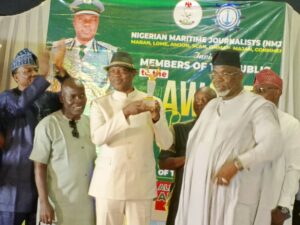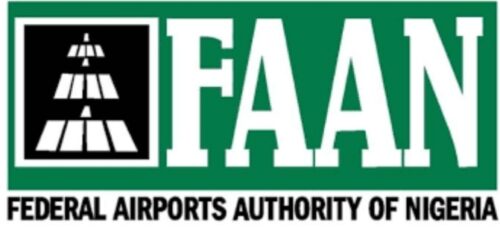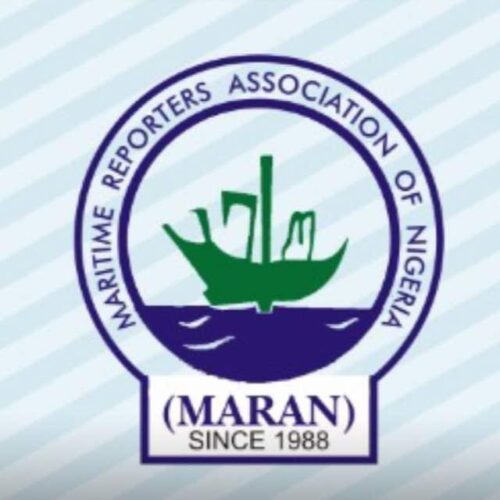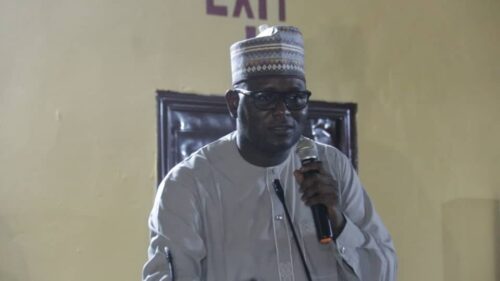Nigeria Customs Boss, Adeniyi, Decries Proliferation of Associations in Freight Forwarding, Maritime Media
By Nifemi Coker

The Comptroller-General of the Nigeria Customs Service (NCS), Bashir Adewale Adeniyi, has raised concerns over the excessive fragmentation of associations in the freight forwarding sector and the maritime media, warning that the trend is sending conflicting signals to policymakers and hindering meaningful engagement.
Speaking at the Award and Dinner Night held in his honour by the maritime media in Lagos on Thursday, February 13, 2025, Adeniyi expressed frustration over the lack of a unified voice among freight forwarders. He noted that the discordant positions taken by various groups make it difficult for government authorities to engage them effectively on policy matters affecting their industry.
“The story of Customs agents is similar to that of maritime journalists in terms of the proliferation of associations. There are so many discordant tunes coming from the freight forwarders, which do not help policymakers.
“The government wants to respect and consult them on industry policies, but the lack of cohesion complicates such efforts.”
The Customs boss therefore urged freight forwarding groups to unite under a single umbrella to ensure a more structured and respected representation before the government.
He specifically called on industry veterans, including Prince Olayiwola Shittu, former National President of the Association of Nigerian Licensed Customs Agents (ANLCA), and Alhaji Akeem Olanrewaju, Chairman of the Customs Consultative Council (CCC), to lead the unification effort.
The freight forwarding sector in Nigeria is currently regulated by the Council for the Regulation of Freight Forwarding in Nigeria (CRFFN), which recognizes multiple associations, including ANLCA, the National Association of Government Approved Freight Forwarders (NAGAFF), the Council of Managing Directors of Licensed Customs Agents (CMDLCA), and the Association of Registered Freight Forwarders of Nigeria (AREFFN).
However, a lack of alignment among these groups has often led to accusations that the government neglects their input in critical policy decisions. A recent example was the imposition of the controversial 4% FOB charge on cargo clearance, which was later suspended following protests from freight forwarders who claimed they were not consulted beforehand.
Beyond the freight forwarding sector, Adeniyi also called for greater unity among maritime journalists, emphasizing that the existence of multiple associations within the media space has made it difficult for practitioners to access industry opportunities and welfare benefits.
“There are numerous opportunities available to maritime journalists, but these can only be fully harnessed if they come together under one umbrella,” he said.
“A unified maritime media body should be thinking of ways to improve members’ welfare, such as exploring life insurance and housing mortgage options.”
Adeniyi pledged to advocate for better welfare conditions for maritime journalists but stressed that this would only be feasible if they established a cohesive and recognized structure.
His call for unity was reinforced by the fact that six major maritime media associations came together to organize the award event in his honour.
These included the Maritime Reporters Association of Nigeria (MARAN), the League of Maritime Editors (LOME), the Association of Maritime Journalists of Nigeria (AMJON), the Maritime Journalists Association of Nigeria (MAJAN), the Shipping Correspondents Association of Nigeria (SCAN), and the Online Maritime Media Association of Nigeria (OMMAN), along with independent journalists.
The highlight of the evening was the conferment of the ‘Iconic Maritime Personality of the Year 2024’ award on Adeniyi, recognizing his impactful leadership in the maritime sector.
The event, attended by top Customs officers, freight forwarders, and maritime stakeholders, underscored the need for a more coordinated industry to foster policy inclusivity and sustainable development.






